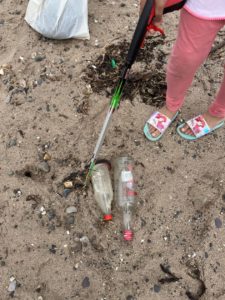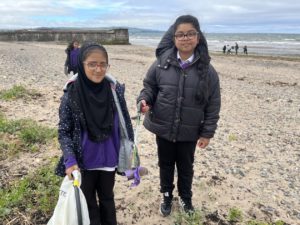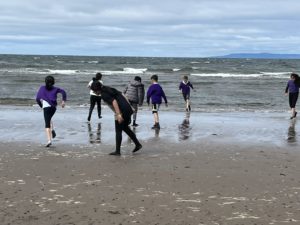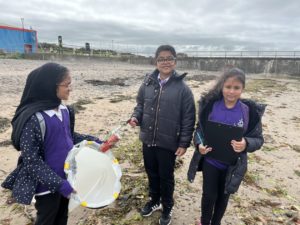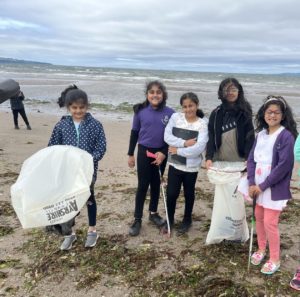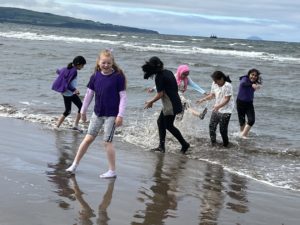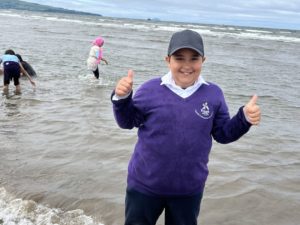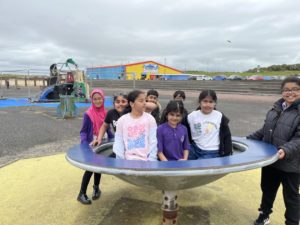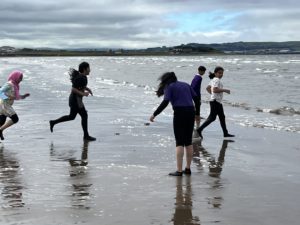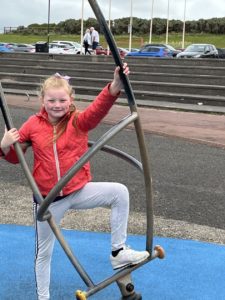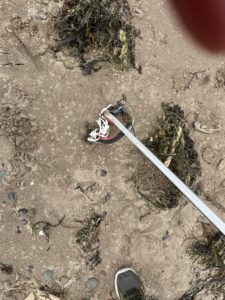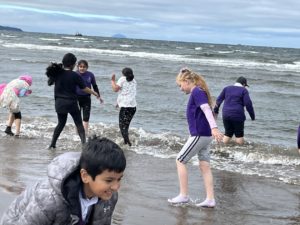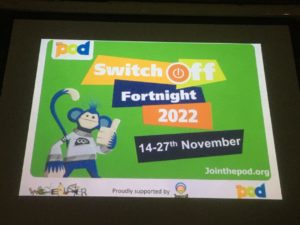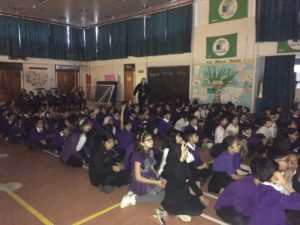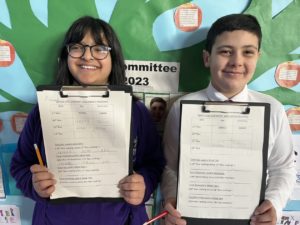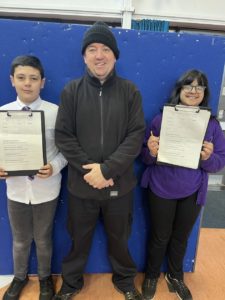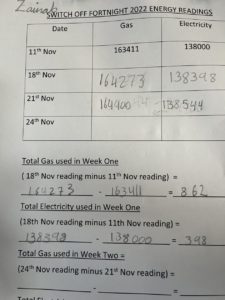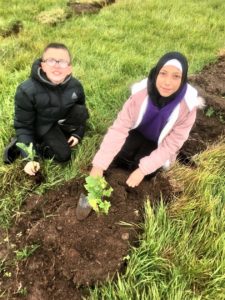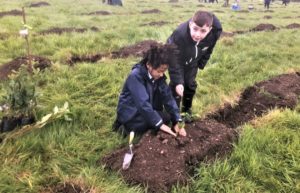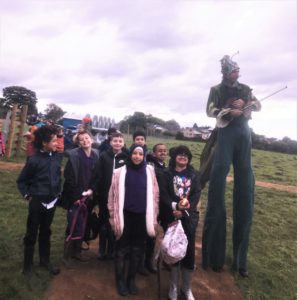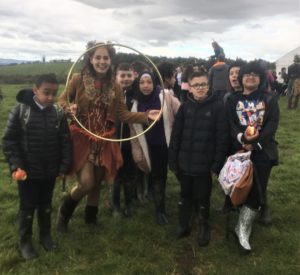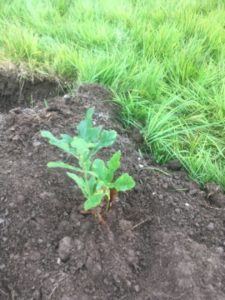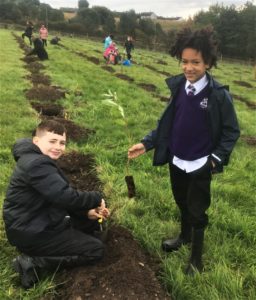As part of our work on the Litter and Waste Eco School’s topic, our pupils have been busy since August 2021 trying to cut the amount of litter in our grounds and in our two adopted streets, Maxwell Drive and St. Andrew’s Drive. You can see some of our photos below of our litter picking in the local area and in our school grounds.
As well as picking up the litter, we run surveys to see what types of litter there are. This has helped us to see what we need to do to tackle this. As ever, we get the strangest of items turning up in our litter surveys. In previous years, we found diver’s flippers, six inch lime green stiletto shoes and half a bike. In our latest litter picks, metal forks, hub caps and pots and pans turned up.
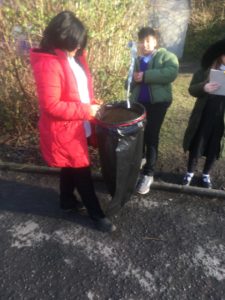
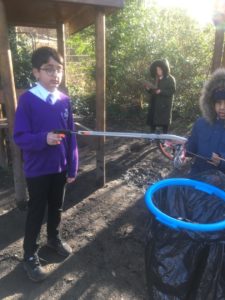
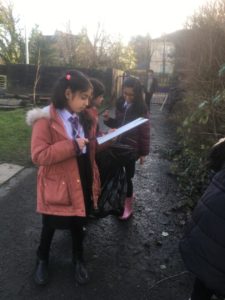
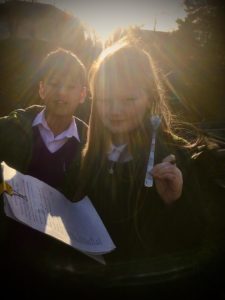
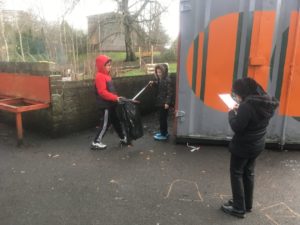
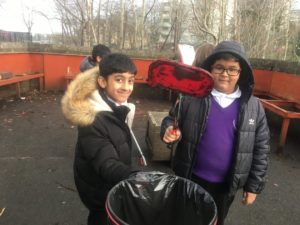

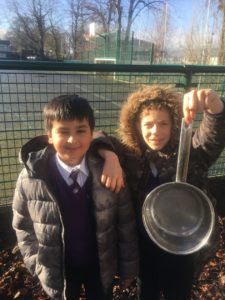
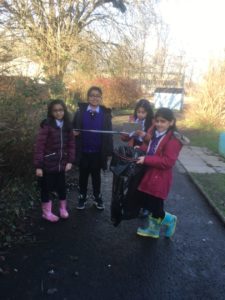
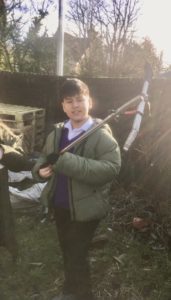
P5 on a litter survey in our school grounds
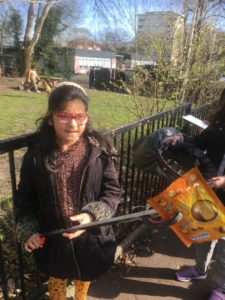
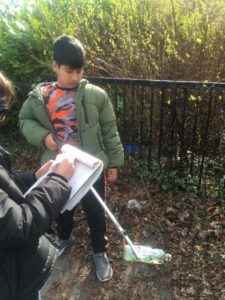

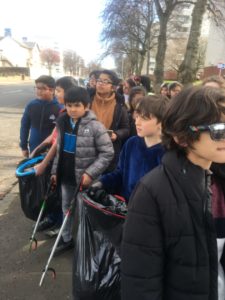

Litter Survey in our adopted streets. Look how clean we left St. Andrew’s Drive. Not one piece of litter in sight!
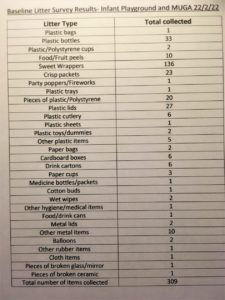
Here is the summary of all the entries on our survey team’s sheets. As you can see the sweet wrappers are the biggest part of the litter problem in our school grounds.
Crisp packets and sweet wrappers are always the worst offenders in our school grounds and plastic bottles also used to be one of the biggest contributors to our litter problem, until the council stopped providing bottled water in the dinner hall. The Eco Committee have discussed these issues at their meetings and they decided that we would start recycling our crisp packets with Terra cycle initially. This was a scheme whereby you could collect and return crisp packets and they would be made into insulation blankets for homeless people. Unfortunately, this scheme ended and now we take our crisp packets to Tesco for recycling.
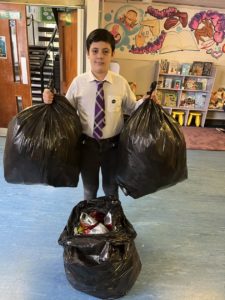
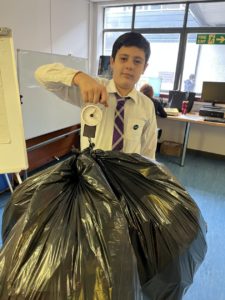
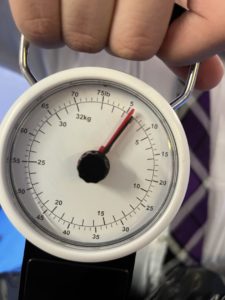
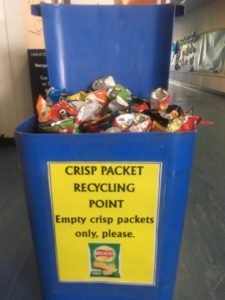
Here is Kasim with our bags of weighed crisp packets, ready to go to Tesco to be recycled.
The Eco Committee has proposed that pupils unwrap their sweets or snacks at home and put them into their lunchboxes, to be eaten straight from there at play times, as a way to stop the sweet wrappers ending up scattered across the playgrounds. We hope to introduce this idea in the new year as well as provide parents with a leaflet on how to make pupil’s packed lunches more sustainable. The leaflet will be based on the research that P4-7 pupils have been tasked with, for our Waste-Free Packed Lunch Competition. Pupils should undertake some research at home and make a poster with a labelled diagram of what a waste free lunch should be, in terms of packaging and food. The deadline for com petition entries has been extended to the first week back after the holidays and winners will be announced at our Walking Bus Assembly in the new year.
Another way to stop waste going to landfill sites is to have a Book and Toy swap Day and this is exactly what we did. Pupils brought along their old, unwanted toys or books to our event and had the chance to see what was on offer. They had to agree to swap their items for something they wanted. There were lots of happy faces at the end of the event as pupils went home with something they wanted.

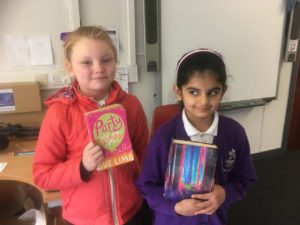
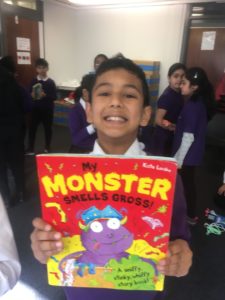
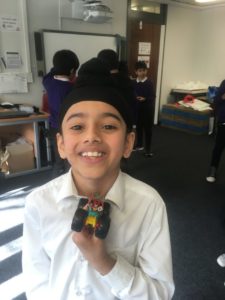
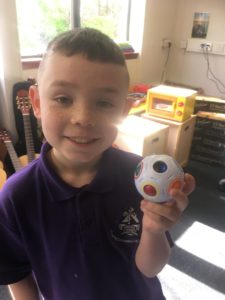
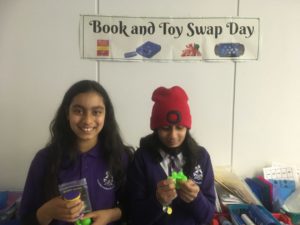



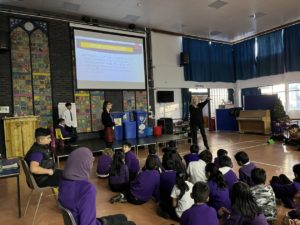
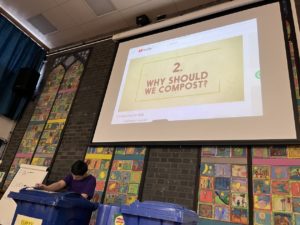
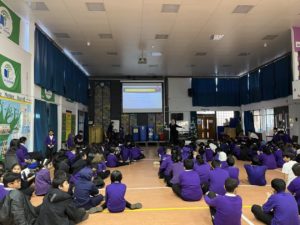
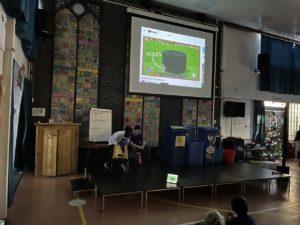 Last Week P 4-7 attended a Composting assembly in the school Hall, run by the Eco Committee. As we make our own compost in our Eco garden at St. Albert’s to use in growing fruit and vegetables, we wanted all our pupils to be aware of what composting is and why we should do it. Pupils watched a presentation about this subject and were reminded about the different bins we used for collecting and recycling food waste, crisp packets and plastic bottles, so they dispose of these items in the correct bins. At the end of the presentation, pupils took part in a quiz to earn points for their house groups, Earth, Wind or Fire. The Eco Committee added these points to their monthly totals. The pupils learned that if food waste isn’t composted and is sent to a landfill site, where it is dumped by the bin men, it releases greenhouse gases to the atmosphere such as Methane, which is 25 times more potent than carbon dioxide at contributing to global warming. They also learned that food scraps contain a lot of water and when combined with all the other rubbish in landfill sites, to create a toxic sludge. This sludge leaches into the soil and can get into groundwater and from there into rivers and lakes, harming the creatures that live there. They learned that the types of items that we want pupils to add to our compost bins are as follows:
Last Week P 4-7 attended a Composting assembly in the school Hall, run by the Eco Committee. As we make our own compost in our Eco garden at St. Albert’s to use in growing fruit and vegetables, we wanted all our pupils to be aware of what composting is and why we should do it. Pupils watched a presentation about this subject and were reminded about the different bins we used for collecting and recycling food waste, crisp packets and plastic bottles, so they dispose of these items in the correct bins. At the end of the presentation, pupils took part in a quiz to earn points for their house groups, Earth, Wind or Fire. The Eco Committee added these points to their monthly totals. The pupils learned that if food waste isn’t composted and is sent to a landfill site, where it is dumped by the bin men, it releases greenhouse gases to the atmosphere such as Methane, which is 25 times more potent than carbon dioxide at contributing to global warming. They also learned that food scraps contain a lot of water and when combined with all the other rubbish in landfill sites, to create a toxic sludge. This sludge leaches into the soil and can get into groundwater and from there into rivers and lakes, harming the creatures that live there. They learned that the types of items that we want pupils to add to our compost bins are as follows: